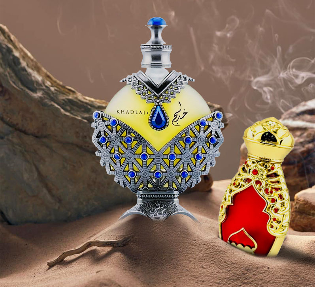The Science Behind Body Chemistry and Perfume Longevity
Perfume longevity is something that many fragrance lovers often struggle with, and while it may seem like a simple matter of applying more fragrance, the true science behind it is much more complex. Much like a deed without warranties, which conveys property without any guarantees regarding the title or ownership, perfume longevity is not guaranteed—it's influenced by various factors that are as unique as your body chemistry.
What Influences Perfume Longevity?
Your body chemistry plays a crucial role in how a fragrance interacts with your skin, affecting its lasting power. Just like with a deed, where there’s no certainty about the property's condition or title, there are no guarantees about how your perfume will react with your body. However, understanding these factors can help you optimize how long your fragrance lasts. Some of the key elements include:
Skin Type and Moisture Levels
Dry skin tends to absorb perfume faster, leading to quicker evaporation, while moisturized skin holds the scent longer. Moisturized skin retains fragrances better, ensuring that the scent lasts throughout the day.
Body Temperature
Much like a warm summer day can cause a deed’s terms to shift unexpectedly, a high body temperature can cause perfume to evaporate more quickly. Warmer body temperatures can accelerate the evaporation of perfume, reducing its longevity.
pH Levels
The acidity or alkalinity of your skin influences how the perfume molecules break down, much like how legal terminology can affect property transactions. A more acidic skin surface may cause the perfume to dissipate quicker, while an alkaline skin may prolong the fragrance.
Diet and Health
Your diet and health can alter your skin's natural oils and acidity, similar to how external factors can affect a deed's validity or outcome. Certain foods, medications, and overall health can impact how a fragrance lingers on your skin.
Why Does Your Perfume Seem to Disappear So Quickly?
Perfume is not as simple as just spraying it on and hoping it lasts. Just like the risks of a deed without warranties, there are factors beyond your control that determine how long your fragrance lasts. The combination of your natural body scent, sweat, hormones, and other elements creates a unique environment for the fragrance to react with, influencing its strength and longevity.
Unlike a warranty deed, which offers legal guarantees, perfume doesn’t come with a "warranty" for lasting power. You may need to apply additional measures, like layering scents or using a fragrance-free moisturizer, to help extend the life of your perfume.
The Risks of Poor Perfume Longevity
If you apply a fragrance and find that it fades too quickly, you’re facing the same risks as those involved in a deed without warranties: the loss of value. In the case of perfume, you might not get the full experience of the fragrance you purchased, leading to disappointment and frustration. Factors like poor skin care or using a fragrance that doesn’t match your body chemistry can affect how well the scent lasts throughout the day.
Is There a Way to Guarantee Long-Lasting Fragrance?
Much like real estate transactions that require due diligence, making your perfume last requires understanding and applying the right techniques. It’s essential to be mindful of your body’s chemistry and the factors that influence how perfume interacts with your skin. While there’s no way to make your perfume last forever, following the right tips can help you ensure that your scent stays with you for as long as possible.
Perfume Layering
Layering fragrances can be a great way to extend their longevity. Using complementary body lotions or matching body sprays can help create a scent profile that lasts longer.
Choosing the Right Fragrance
Fragrances with heavier base notes such as woody, oriental, and gourmand fragrances generally last longer compared to lighter, citrusy fragrances. Understanding fragrance notes and selecting perfumes with longer-lasting components can also enhance scent durability.
Proper Application
Apply perfume to pulse points like your wrists, neck, and behind your ears. These areas produce heat, helping to diffuse the fragrance over time. Avoid rubbing your wrists together after applying perfume as this can break down the molecules.
Perfume Storage
Storing your perfume correctly is key. Keep it in a cool, dark place away from direct sunlight and heat. Always close the cap tightly after each use to prevent oxidation and evaporation.
